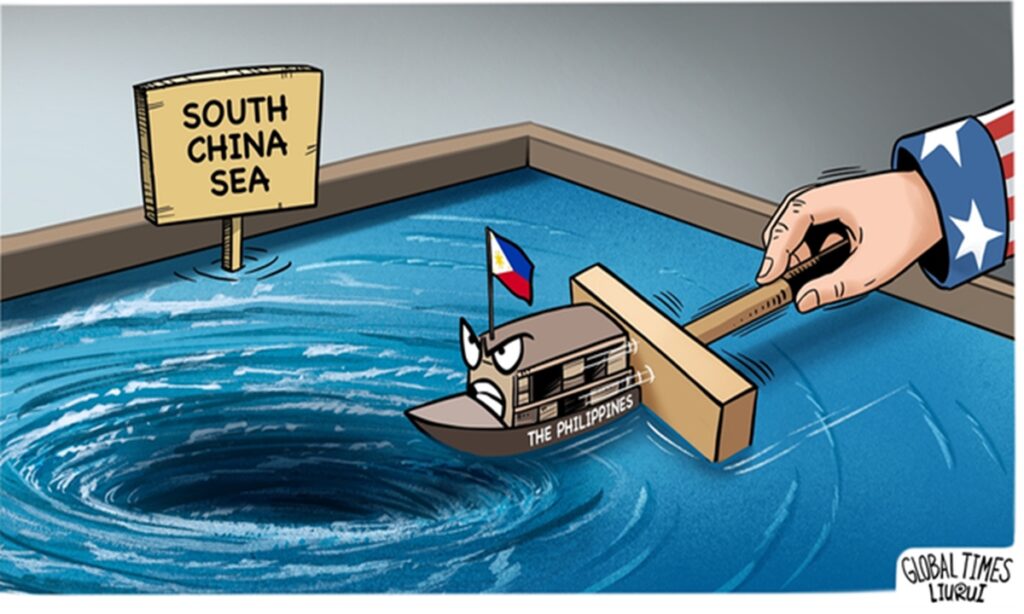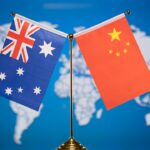CCG takes control measures against Manila’s illegal intrusion of Ren’ai Jiao
The China Coast Guard (CCG) on Monday took control measures in accordance with the law, including issuing warnings, intercepting, boarding and conducting inspections, when three Philippine vessels illegally entered the waters off Ren’ai Jiao (Ren’ai Reef), in China’s Nansha Qundao (Nansha Islands), the first operation made known to the public after China’s newly released administrative law enforcement procedures for Coast Guard agencies, which took effect on Saturday.
The Philippines attempted to test how the procedures are implemented, analysts said, but Manila’s strategy of “multipoint provocations” to play victim and smear China will not shake China’s determination to safeguard its legitimate interests with all necessary measures, experts said.
The Philippines broke its promise by sending a supply ship and two inflatable boats to illegally enter the waters adjacent to the Ren’ai Jiao of China’s Nansha Islands on June 17, in an attempt to deliver supplies to its illegally “grounded” warship, CCG spokesperson Gan Yu said on Monday.
What’s worse, the Philippine supply ship deliberately and dangerously approached and collided with normally sailing Chinese vessels, Gan said.
CCG took control measures in accordance with the law, including issuing warnings, intercepting, boarding and conducting inspections, and forcibly driving them away, which were reasonable, lawful, professional and standardized, Gan said.
We once again sternly warn the Philippine side that all forms of infringements and provocations are futile. The CCG will always stay on high alert and stand ready to resolutely safeguard China’s territorial sovereignty and maritime rights and interests, according to the spokesperson.
Ding Duo, deputy director of the Institute of Maritime Law and Policy at the National Institute for South China Sea Studies, told the Global Times on Monday that the CCG is taking necessary measures in response to the Philippine provocations and in accordance with on-site situations.
It is the Philippines, not China, that should restrain its acts to avoid such incidents or further escalate tensions in the South China Sea, Ding said, adding that the procedures actually provide a professional, scientific and practicable guideline for CCG personnel.
Though the procedures were not released to target any specific country, the Philippines has been hyping up the issue in the past few weeks, claiming it to be a worrisome escalation of the situation.
The goal of the Philippines’ latest provocation in Ren’ai Jiao was to test how China would act with the new procedures, but the bigger aim is to carry out its strategy of “multipoint and repeated provocations” to amplify its smear campaign against China, Ding said.
In addition to playing victim to mislead the international community, Ding pointed out that the Philippines also attempted to utilize these incidents in another illegal, so-called arbitration.
Xu Liping, director of the Center for Southeast Asian Studies at the Chinese Academy of Social Sciences, told the Global Times that the Philippines has been consistently pretending to be a victim of “Chinese bullying” in the South China Sea. But in truth, the Philippines is asserting illegitimate rights and claims, undermining peace and stability in the region.
Though China remains restrained in its operations to defend its interests, the Philippines has continuously provoked and even escalated its acts. The Philippine coast guard recently dispatched boats to illegally land on the islets of Xianbin Jiao and personnel stationed aboard its illegally grounded warship pointed guns at CCG vessels.
To cope with that, China’s ability to defend its interests has been enhanced and its operations are more effective, Ding said, adding that the Philippine provocations have only forced China to enhance law enforcement efforts correspondingly and increase deployment of vessels and personnel in the sensitive area.
The Philippines should learn that its provocations, coming at a higher and higher cost, will not have the intended effect, whether it is through direct provocation at sea, efforts to draw more countries into the region via military pacts and drills, or smear campaigns and illegal arbitrations, observers said.
Analysts said that China will take comprehensive countermeasures in all fronts to safeguard its territorial sovereignty and maritime rights. China’s Type 075 landing helicopter dock, an amphibious assault ship, was spotted in Zhubi Jiao in Nansha Qundao, the Manila Times reported. It came shortly after another main amphibious warship of the PLA Navy, a Type 071 amphibious landing ship, reportedly for the first time hosted hovercraft drills near Xianbin Jiao.
Global Times




